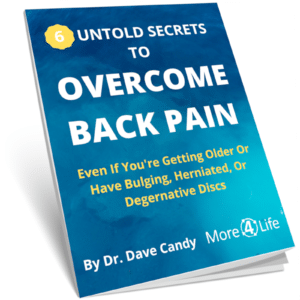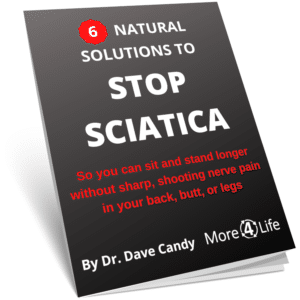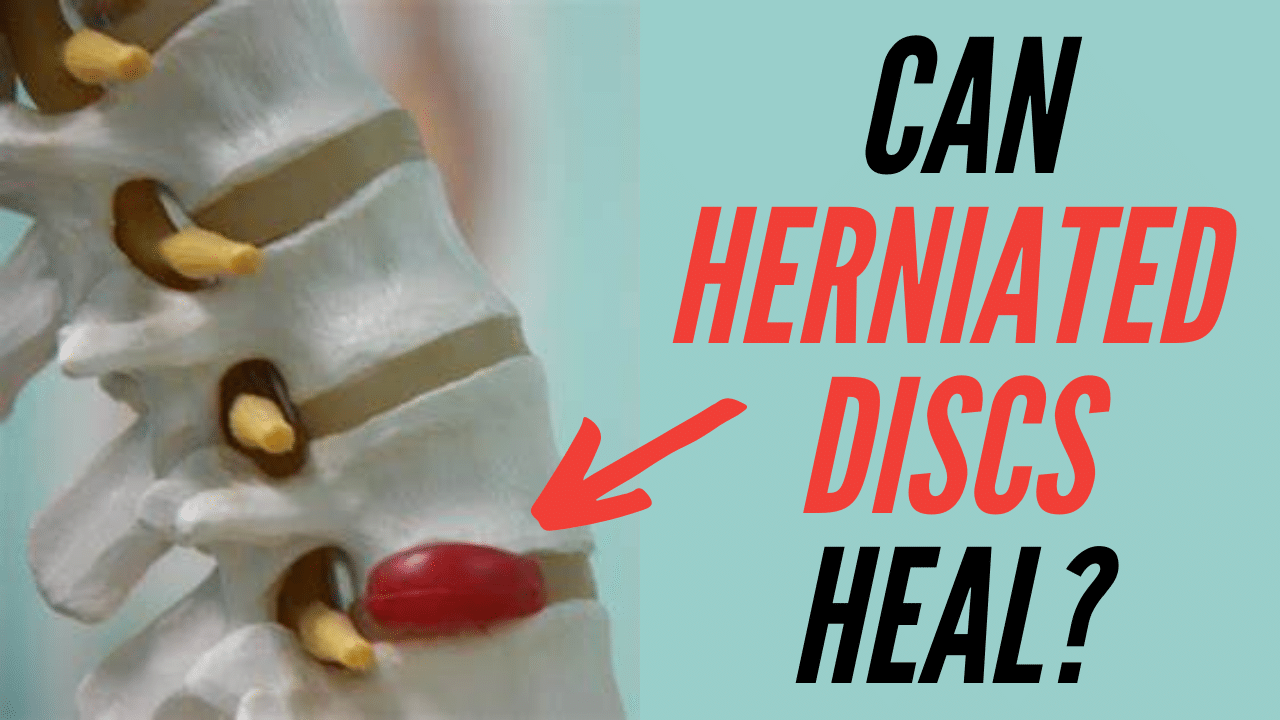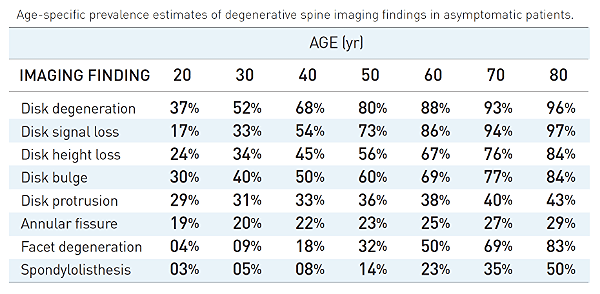It's one of the most common questions that we get:
Can a herniated disc heal itself without surgery?
And the answer is:
YES, a herniated disc CAN heal itself without surgery!
Watch the video below to learn how to help a herniated disc heal naturally and get rid of back & leg pain without surgery.
How Long For A Herniated Disc To Heal Itself Without Surgery?
It takes a herniated disc 300-500 days to heal without surgery.
Why does is take so long?
The reason it takes so long for a herniated discs to heal itself that the discs in your spine have a very poor blood supply, especially toward the center of the disc.
Poor blood flow means lack of nutrients and lack of oxygen, both of which are vital to helping herniated discs heal.
Now, you may think:
"300-500 days! That's a long time! I'm not sure I can wait 1-2 years for my herniated disc to heal"
...and it is a long time, but the good news is:
You probably don't have to wait for your herniated disc to heal for your pain to go away!
More on that to come further below...

What Can Be Done To Heal A Herniated Disc Without Surgery?
You CAN'T speed up how long it will take for a herniated disc to heal.
You CAN, however, slow down the healing process.
These Things Slow Down Herniated Disc Healing
1. Smoking
The carbon monoxide from cigarette smoke binds to hemoglobin, the oxygen carrying part of your red blood cells, more easily than does oxygen. In turn, this lack of oxygen can keep herniated discs from healing.
Now, if you're a smoker, it should be no news to you that smoking is bad for your health.
But quitting smoking is hard!
Ultimately what you have to ask yourself is: "Do I GAIN more pleasure in my life from smoking, or do I LOSE more pleasure from my life from back pain, sciatica, and other negative consequences of smoking?"
2. Excessive Mechanical Stresses
Mechanical stresses that cause excessive loading of the discs can slow down the healing process. Essentially things that "re-injure" the disc can set back the clock on the healing time. Some examples include:
-
Heavy lifting - especially from low surfaces
-
Frequent vibration - like driving a truck or bus for a lifting
-
Twisting - the low hips and mid back are anatomically designed to twist. The lower back is not.
3. Lack of Activity
Activity, especially aerobic activity is important in helping herniated discs to heal as fast as possible.
Again, spinal discs have poor blood supply, and the way they get their oxygen is by diffusion from the vertebra above and below the disc.
When you do aerobic (literally meaning "with oxygen") you increase overall blood flow in your body.
Furthermore, when you do weightbearing activity such as walking, the rhythmic loading of the discs that happens each time you take a step helps oxygen to move from the vertebrae above and below the disc into the disc itself.
What Exercises Help Herniated Discs To Heal Without Surgery?
Again, aerobic exercise, particularly walking is best to help herniated discs to heal without surgery.
However, many people with herniated discs have back pain or sciatica when walking.
(Learn how to relieve back pain and sciatica when walking)
These are some other exercises that can help herniated discs to heal
1. Swimming or walking in the pool
The buoyancy of the water can unload your discs and make exercise less painful
2. Recumbent bike or elliptical
Biking is a good aerobic activity, but sitting upright on a bike seat while balancing yourself and using your hip flexor muscles as you pedal can actually create more compression on your discs.
However, riding a recumbent bike that has a back support is a good option if you have back pain when walking.
Alternatively, you can use a recumbent elliptical cross-trainer, which allows you to exercise your arms and legs at the same time while still offering back support.
What about McKenzie Exercises?
McKenzie exercises (a.k.a. extension exercises or backward bending exercises) were once thought to make the herniated disc material "go back in".
Subsequent research has found that this in fact is not the case.
Repeated end-range backward bending can actually make discs bulge or herniated more.
However, repeated extension exercise is good for some people to help relieve back pain and sciatica.

How To Relieve Herniated Disc Pain Without Surgery
"Wait!... didn't you say something earlier about not having to wait for my herniated disc to heal before the pain goes away?"
Yes! You're right!
You do NOT need to wait for your herniated disc to "heal" before you start feeling better.
In fact, there are millions of people with degenerative, bulging, and herniated discs on their MRI who have no pain at all!
The table below shows just how common "abnormal" MRI findings are in people without pain. As you'll see, "abnormal" findings become quite "normal" as you age.
(From Brinjikji et al. "Systematic Literature Review of Imaging Features of Spinal Degeneration in Asymptomatic Populations". American Journal of Neuroradiology. 2015. 36:811–16)
So What Can Be Done To Relieve Pain From A Herniated Disc If It Doesn't Have To Heal?
There are lots of things that can help you relieve back pain even if you have bulging, degenerative, or herniated discs
Some of those things include:
-
Posture modification (Hint: there's no one universal "good posture" that's best for everyone)
-
Hands-on treatment (i.e. spinal manipulation, soft-tissue / muscle release, or dry needling) for quick relief
-
Proper nutrition
-
Proper sleep
-
Stress management
-
Learning what triggers your symptoms so that the pain doesn't return in the future.
Can A Herniated Disc Heal After 2 Years?
It is possible for a herniated disc to heal after 2 years.
As I mentioned before, there are a lot of things that can slow down the healing process of a herniated disc.
If you herniated a disc over 2 years ago, but you haven't fixed the root cause of the problem, you're continuing to re-injur it.
That means the 2 year healing time keeps starting over from Day 1.
So the sooner you find out what's preventing your discs from healing, the sooner you can start to address that problem so that your discs CAN heal.
Furthermore, the sooner you get the proper treatment for your herniated discs, the sooner you get out of pain.
And again, it DOESN'T take 1-2 years to get your back to feel better, even if you do have herniated discs.
Like this post? Read more of our posts on herniated discs and back pain such as:
How A Herniated Disc At L5-S1 Is Treated
How We Help With Bulging, Herniated, And Degenerative Discs At L4-L5 and L5-S1



